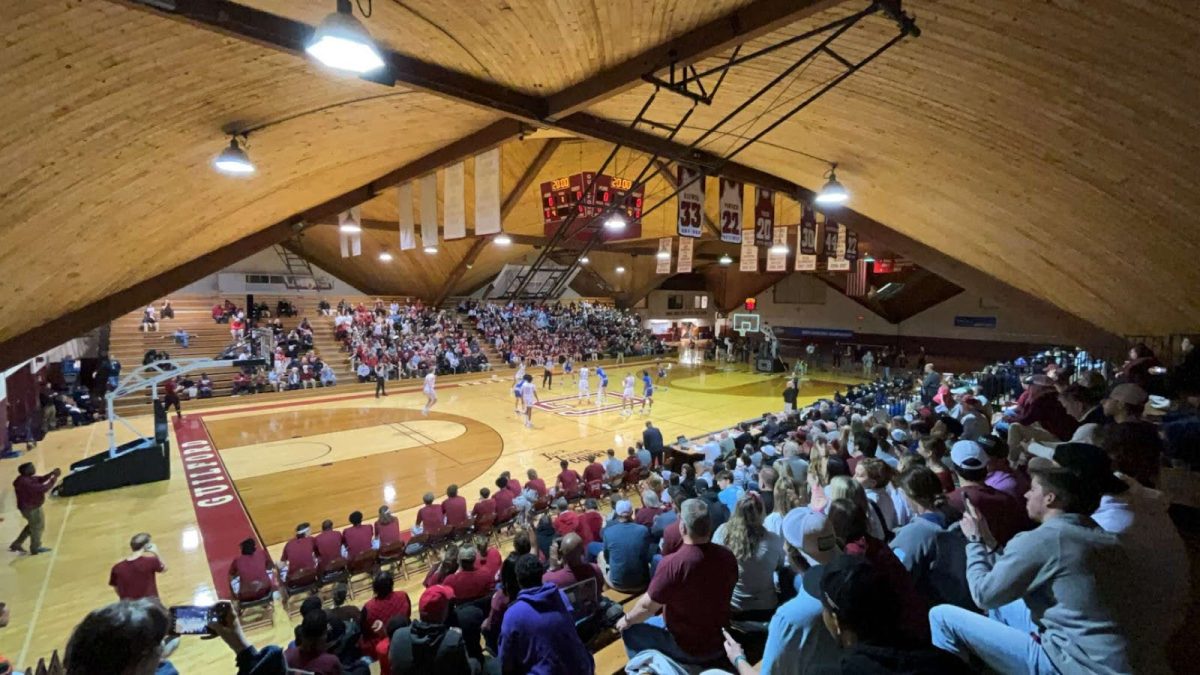The Pines has existed since the early 1940s and over the past 74 years, it has transformed into the sustainability house that we know today. However, house members have only recently begun to examine the lack of diversity.
Before you make the decision to apply to the Pines, you must be prepared to adjust your lifestyle to accommodate to the house’s theme of sustainable living.
“The Gray Water System is probably our biggest sustainability effort,” said Julia Draper, senior and Pines house manager. “It’s very different from anywhere else on campus.”
The system collects rainwater in rain barrels and excess water from showers and sinks inside the house, allowing for its reuse by Pines residents.
“Along with the Gray Water System, we have the garden,” said Marek Wojtala, junior and second year Pines resident. “We’re very big into do-it-yourself type stuff. We make our own laundry detergent, (and) we get most of our food from the farm or from Deep Roots, the co-op downtown. We try to be sustainable in a bunch of different aspects.”
Beyond this, they limit air-conditioner usage, except during extreme weather. The goal of the house is to continually look for ways to reduce its effect on the environment.
If this sounds appealing, then you may be wondering how to sign up.
When you submit your application to the Office of Campus Life, they remove the demographic information, give the application a number and hand it off to the residents of the house. The house residents then deliberate to decide who is invited to enter their intentional community and who is not.
“It’s incredibly stressful on both sides of the process,” said Wojtala. “Last time, we spent at least five hours discussing the applications. I think that the community has this idea that we’re just letting our friends in, but the applications are very anonymous.”
Another complication arises when you consider the fact that the Pines is considered a “white space,” as traditionally, a majority of house residents are white. One of the major goals for the house going forward is to reverse this trend.
“The Pines being a traditionally white space is absolutely an issue I think we need to address, but it’s very complicated and very difficult to address,” said Lucas Perez-Leahy, junior and resident of the Pines. “There are historical issues at play here, in terms of the environmental movement not having a good grasp on intersectionality and how sustainability practices connect to systematic oppression of people of color, against LGBTQA people, and against women — but they are connected.”
The conversation about diversity, at least in terms of the current house members, arose when a recent Hispanic resident started making the other house members aware of the overarching white culture of the house.
“It wasn’t apparent to me that someone of color would feel uncomfortable being around the Pines,” said Vincent Schueren, junior and Pines resident. “That’s not something that I would have caught onto if it hadn’t been a house topic, just because of the nature of white privilege.”
One student suggested that this might be due to a Guilford-wide diversity issue.
“I feel that Guilford is pretty segregated no matter what, not just the Pines,” said Tom Clement ’14, a three year resident at the Pines. “People have their own enclaves. That’s how society has developed and how housing has developed, so perhaps the patterns are just being replicated in housing at Guilford.”
The Guilfordian will be examining the issue of diversity, in housing and beyond, more thoroughly in later issues.
“Everyone at the Pines is learning how we play into these systems of privilege and what we can do to change that,” said Perez-Leahy. “We haven’t come to any conclusions as this is a conversation that’s just started, but it’s going to be one that we will continue, hopefully with the Guilford community involved.”











